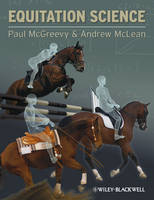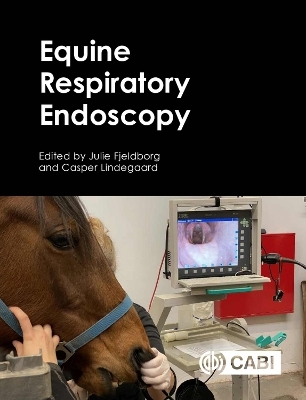
Equitation Science
Wiley-Blackwell (an imprint of John Wiley & Sons Ltd) (Verlag)
978-1-4051-8905-7 (ISBN)
- Titel ist leider vergriffen;
keine Neuauflage - Artikel merken
Written by two internationally recognised experts, Equitation Science is the first book to draw together the principles of this emerging field into a much-needed coherent source of information.
The goal of equitation science is to enhance our understanding of how horses think and learn, and to use their natural behaviour to train, ride or compete with them in as fair a manner as possible. The welfare consequences of training and competing horses under different protocols are explored. Drawing on traditional and emergent techniques, this book incorporates learning theory into an ethical equine training system suitable for all levels. It also focuses on evidence-based approaches that improve rider safety.
"Equitation Science is one of those rare books that is going to change the way we train and manage horses forever. It brings together a fundamental understanding of the way horses think and behave and presents a system of modern training that has the welfare of the horse at its core it must be the foundation work for the next generation of professional and amateur riders and trainers. Riders will ride better, trainers will train better and we will have happier, healthier horses."
Wayne Channon, International Grand Prix Rider
"I found this a very interesting and enlightening book. Equitation Science will help anyone involved with horses to understand them more and to be more effective in their training and education. The knowledge this brings to anyone involved with horses should help to make the horses lives easier and therefore allow the partnership between humans and equines to flourish."
Yogi Breisner, British Eventing Performance Manager
"Equitation Science is an ambitious and thorough look at an enormous range of areas, approaches and factors concerning the training of horses. The authors have an underlying theme to their text of scientifically assessing and then also promoting the use of ethical and humane methods of horse training to increase all sport horses welfare and happiness within their sporting requirements. Equitation Science also provides an invaluable insight as to how and why what we do with our horses actually works."
Paul Tapner, Professional International Advanced Eventing Rider, Badminton CCIâ â â â 2010 Winner
Paul McGreevy BVSc, PhD, MRCVS, MACVS (Animal Welfare), is Associate Professor at the Faculty of Veterinary Medicine, University of Sydney, Australia. He is an RCVS Recognised Specialist in Veterinary Behavioural Medicine, and has a PhD in horse behaviour. His research work and teaching in horse welfare have been recognised by numerous international awards and he acts as a scientific advisor to many of the world s leading animal charities. He has a wealth of practical experience both as a riding instructor and an equine veterinary practitioner, and has been training dogs and horses since his childhood. Andrew McLean BSc DipEd PhD is one of the world s foremost equine behavioral practitioners and is Principal Trainer at the Australian Equine Behaviour Centre. He regularly conducts clinics in a variety of international locations, and holds a PhD in animal neuroscience. He has represented Australia in Horse Trials, in dressage he has competed to FEI level and he has also ridden to Grand Prix and Championship level in Show-jumping. He has trained and coached some of the world s leading riders, trainers and coaches, and has reformed internationally competitive horses up to Olympic Games and World Championship level.
Preface vii
Acknowledgements ix
1 The Quest for Knowledge 1
2 Cognitive Ethology 6
3 Anthropomorphism 36
4 Learning I: Non-associative 56
5 Learning II: Associative (Attractive) 70
6 Learning III: Associative (Aversive) 85
7 Applying Learning Theory 104
8 Training 128
9 Horses in Sport andWork 162
10 Apparatus 179
11 Biomechanics 198
12 Unorthodox Techniques 218
13 Fight and Flight Responses and Manifestations 225
14 Ethical Equitation 258
15 The Future of Equitation Science 265
Glossary of the Terms and Definitions and of Processes Associated with Equitation 273
References 289
Index 305
| Erscheint lt. Verlag | 6.8.2010 |
|---|---|
| Verlagsort | Chicester |
| Sprache | englisch |
| Maße | 189 x 244 mm |
| Gewicht | 704 g |
| Einbandart | kartoniert |
| Themenwelt | Veterinärmedizin ► Pferd |
| ISBN-10 | 1-4051-8905-3 / 1405189053 |
| ISBN-13 | 978-1-4051-8905-7 / 9781405189057 |
| Zustand | Neuware |
| Informationen gemäß Produktsicherheitsverordnung (GPSR) | |
| Haben Sie eine Frage zum Produkt? |
aus dem Bereich



